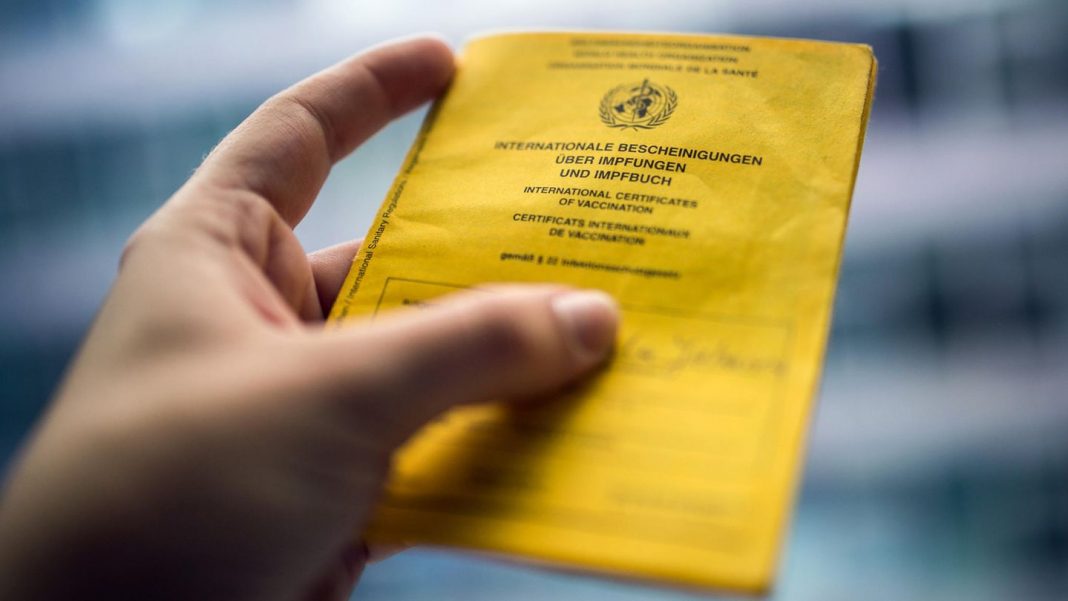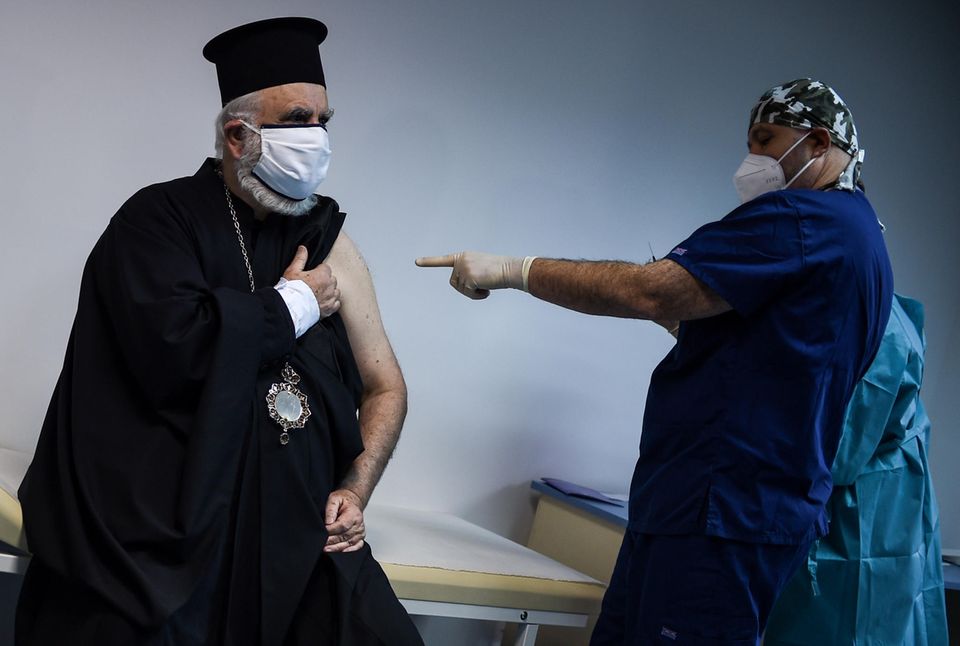The vaccinations against the coronavirus reduce infections and prevent severe courses and deaths. And yet: it can happen in rare cases that even doubly vaccinated people become infected or even develop symptoms. Why this is not surprising.
First it rose slowly, then quickly, now it decelerates again: the vaccination rate is getting a lot of attention these days. According to the Robert Koch Institute (RKI), more than 60 percent of the population has received at least one vaccine dose. 48 Percent are considered fully vaccinated. This corresponds to almost 40 million people.
At the same time, however, there is also a less beautiful development: Recently, the number of new infections increased again, which is mainly due to the particularly contagious virus variant delta, which now also dominates in Germany. The nationwide seven-day incidence has been rising again for several days and is currently at 12.2.
As a result, an ever-increasing number of fully vaccinated people increasingly come into contact with the virus. In the vast majority of cases, the virus takes the short cut. The antibodies formed by the vaccinations intercept the virus, reduce infections and prevent severe courses and deaths. Data from the USA recently substantiated how much vaccinated people benefit from the protection against severe courses: 99.9 percent of hospital admissions by Corona therefore concerned unvaccinated or people without complete vaccination protection.
The Federal Center for Health Education also writes: “Vaccines against the coronavirus Sars-CoV-2 prevent contracting Covid-19 and offer highly effective protection against severe disease.”Their benefits far outweigh possible risks.
No vaccine protects 100 percent
However, in rare cases, the virus may prevail and infection may occur even in fully vaccinated people. If additional symptoms occur, physicians speak of a so-called vaccination breakthrough.
This sounds threatening at first, but says nothing else than that vaccination does not offer 100% protection against infection and disease – which has been known for a long time and has also been observed in the approval studies of the vaccines.
What the effectiveness says
Example: Biontech. The vaccine showed an efficacy of 95 percent in the final and large pivotal study. It therefore prevented 95 percent of Covid-19 diseases through original variants. This is a very good value. However, this does not mean that out of 100 vaccinated people, 95 remain healthy, while five fall ill. Rather, the value is a measure of risk reduction.
What this means becomes clearer when you look at how vaccines are tested. Large registration studies always have several thousand subjects. They are divided into two groups. One receives the vaccine, the other, on the contrary, an ineffective placebo. The researchers then check how many people fall ill with Covid-19 during the follow-up period. From the difference of the two groups comes the effectiveness.
A fictitious example calculation: Suppose that in a vaccine study there is a placebo and a vaccine group with 5200 subjects each. In the placebo group, 150 people-purely fictitious – fall ill with Covid – 19. If the vaccine has an efficacy of 95 percent, only slightly more than seven people fall ill in the vaccine group (7.5). These are few – but not zero.
In its situation report of 14 July, the RKI lists 5,374 registered vaccine breakthroughs since the beginning of February. 676 of them had to be treated in a hospital. The vast majority of them were older than 60 years (614). Currently, 40 million people in Germany are fully vaccinated. The number of known vaccine breakthroughs is therefore comparatively very low.
Hospital data from Israel also show that it is mainly pre-sick people who had to be treated in a hospital despite being vaccinated twice.
“Prophylaxis is no guarantee of success”
Doctor and author Natalie Grams-Nobmann recently emphasized the benefits of vaccinations on Twitter: “Those who do not understand why you can get COVID-19 despite the complete series of vaccinations, also do not understand why you can get pregnant despite the pill,” she wrote. Prophylaxis is not a guarantee of success, but the risk is much lower.
It will now be important to find out whether certain mutants lead to vaccine breakthroughs more frequently and to what extent possible third-party vaccinations can prevent this. For particularly vulnerable groups of people – including the elderly and chronically ill – a so-called booster vaccination has been discussed for some time. The reason: Studies show that the immune response in these groups of people can be weaker than usual – which also reduces protection against infection and serious illness. Some cancer patients or people after organ transplants may be affected.
For the virus variant Delta, there are also initial indications that it reduces the effectiveness of current vaccines somewhat – although it cannot be undermined.
However, whether vaccines prevent symptomatic diseases is not the only measure of vaccine success. Vaccines that reliably prevent severe courses and deaths are also a real “gamechanger”. And on these two points, the current vaccines still seem to do well. They therefore continue to effectively protect against severe courses with the virus variant Delta, as data from the UK show.
Good protection against serious diseases
The vaccine from Biontech / Pfizer therefore protected 96 percent from hospitalization for a delta infection. The Astrazeneca vaccine came in at around 92 percent. Recent data available from Israel suggests that the Biontech vaccine is 93 percent resistant to serious illnesses and hospitalizations. It is important to have a complete vaccination.
However, it is also clear that the vaccines cannot prevent severe courses in each individual case. The protection – similar to the infections-is not 100 percent. There will always be people who, despite complete vaccination, become infected and can also become seriously ill. As tragic as these cases are, if this leads to a fundamental doubt about the benefits of vaccination, it would inevitably mean even more suffering.
According to calculations by the RKI, at least 85 percent of the population would have to be vaccinated in order to largely contain a fourth wave heading towards autumn with all its negative side effects. Germany is still a long way from that.




